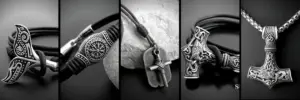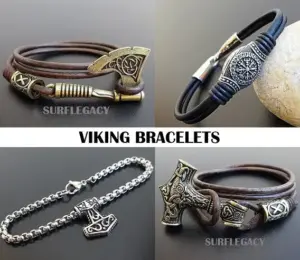In the rich tapestry of Norse mythology, Snotra stands out as the goddess of wisdom, virtue, and social conduct. As a revered deity in the Norse pantheon, Snotra embodied the ideals of intelligence, moral discipline, prudence, and thoughtful etiquette. Her persona sheds light on the Viking culture, revealing the significance of wisdom, virtue, and proper behavior in shaping societal norms.
Origins and Background
The origins of Snotra are shrouded in mystery, as few mythological sources provide details about her background. She is believed to have resided in Asgard, the realm of the gods, alongside other powerful deities. Her name means “the wise one” or “the clever one” in Old Norse, underscoring her link to wisdom and intellect.
Snotra is primarily referenced in the 13th century Icelandic work Prose Edda, penned by the historian Snorri Sturluson. In the Gylfaginning section, she is counted among the Ásynjur, the group of goddesses in Norse mythology. She is described as being wise, prudent and courteous.
From Gylfaginning chapter 35
Þrettánda Snotra, hon er vitr ok látprúð. Af hennar heiti er kallat snotr kona eða karlmaðr, sá er hóflátr er.
“Snotra is thirteenth: she is prudent and of gentle bearing; from her name a woman or a man who is moderate is called snotr.”
Another mention comes from Skáldskaparmál, where Snotra is referenced in a kenning signifying a wise and graceful woman.
Beyond her appearances in the Prose Edda, details about Snotra are scarce in surviving Norse texts. Some scholars believe Snorri himself may have conceived her based on the meaning of her name. Nevertheless, the values she embodies resonated deeply in Viking society, securing her position among the pantheon of Norse deities.
| Fact | Details |
|---|---|
| Tribe | Aesir |
| Goddess of | Wisdom, self-control, self-discipline, virtue, etiquette, and teaching |
| Other names | Snotr, Snotri |
| Old Norse | Snotrɑ |
| Associated Traits | Wisdom, intelligence, teaching, moderation |
| Symbolism | Often depicted as a symbol of wisdom and prudence in Norse mythology |
| Attributes | Revered for her wisdom and teaching abilities |
Attributes and Symbolism
As the goddess of wisdom and virtue, Snotra personified the ideals of intelligence, moral integrity and proper conduct in Norse society. Some of her key attributes include:
Wisdom
Snotra’s primary domain was wisdom, signifying not just knowledge, but the prudent application of intellect. For Vikings, wisdom involved insight, good judgement and expertise derived from life experience. Snotra encouraged the development of practical wisdom.
Self-Control
Snotra governed self-control and discipline, guiding people to exercise caution and refrain from brash behavior. She highlighted the importance of introspection and rational thinking.
Virtue
The goddess promoted virtuous qualities like honesty, integrity and modesty. She served as a moral exemplar in Norse society.
Etiquette
As a goddess of social wisdom, Snotra instructed proper etiquette to navigate social situations smoothly. She embodied tact and grace.
In terms of symbols, Snotra is often depicted with objects representing wisdom like books, scrolls and owls. She is portrayed as calm, thoughtful and serene, underscoring her judicious nature.
The Societal Role of Snotra
As a goddess of wisdom and virtue, Snotra exerted notable influence on Norse society:
Shaping Moral Conduct
Snotra’s promotion of virtues like modesty, integrity and self-control helped shape the moral conduct of Vikings. She guided them to exercise caution, avoid brash behavior and act with honor.
Emphasizing Social Etiquette
In crowded Norse halls, Snotra’s wisdom helped foster proper etiquette and reduced conflict. She taught the nuances of polite conduct and set expectations for courteous interaction.
Valuing Intellect and Experience
By exemplifying wisdom, Snotra highlighted the Norse reverence for intellect, experience and good judgment. Her persona validated the practical application of knowledge.
Counseling Other Deities
As a goddess of wisdom, Snotra likely counseled other Norse deities regarding prudent action. Her level-headed perspective would have been valued by gods and goddesses.
Promoting Thoughtful Discourse
Snotra governed thoughtful and measured speech. She encapsulated the importance of contemplation before voicing opinions or making judgments.
Through these influences, Snotra shaped Viking notions of ideal conduct, intellect, and virtue. She guided them towards judicious action and set standards for wisdom.
Relationship with Other Norse Deities
References to Snotra’s interactions with other Norse gods and goddesses are scarce in surviving sources. However, some potential relationships have been proposed by scholars:
Frigg
As the goddess of wisdom and foreknowledge in Norse mythology, Frigg likely had an affinity with Snotra. The two may have collaborated to counsel Norse deities regarding prudent action.
Odin
Odin’s ceaseless quest for wisdom suggests he would have valued Snotra’s knowledge and insight. As a deity of intellectual might, Odin perhaps relied on Snotra’s prudence and good sense.
Thor
Thor’s legendary boldness and valor may have been balanced by Snotra’s calm wisdom. She perhaps acted as his voice of reason, providing measured counsel to the mighty yet capricious Thor.
Loki
As a notorious trickster, Loki contrasts Snotra’s principles of virtue and integrity. Perhaps Snotra applied her wisdom to counter and caution against Loki’s devious plans.
While Snotra’s interactions with other deities emerge largely from scholarly speculation, her status in Norse mythology suggests close ties with major gods and goddesses. She likely acted as a wise advisor, shaping the conduct of the Norse pantheon.
Snotra in Norse Society
Snotra’s embodiment of wisdom, intellect and virtue resonated deeply with Viking society. Her qualities were aspired to, and her name associated with ideals of intellect.
Reverence for Wisdom
The Norse esteemed wisdom in both men and women. Snotra affirmed intellect as a divine virtue worthy of reverence. Her goddess status elevated wisdom as a quality to strive for.
Guiding the Judicious
Followers of Snotra invoked her guidance to act with prudence, thoughtfulness and discretion. She governed cautious conduct and was a patron to the careful and conscientious.
Ethical and Virtuous Conduct
Snotra’s promotion of wisdom and virtue made her an exemplar for moral action. Vikings who prioritized ethics and principled conduct identified with her model of integrity.
Counseling Leaders
Norse kings and chieftains likely invoked Snotra’s wisdom while weighing decisions and governing people. Her level-headed perspective would have aided their judgment.
The Ideal Norse Woman
Snotra embodied the Norse ideal of feminine wisdom. Intelligent and virtuous women who upheld principles of good conduct were considered blessings from the goddess.
Epitome of “Snotr”
The Old Norse word “snotr” means wise from life experience. Snotra personified the essence of snotr, showcasing intellect fortified by prudence and understanding.
Snotra’s wisdom and virtues permeated Norse consciousness, shaping aspirations, conduct and values. She illuminated ideal qualities to emulate and revere.
Key Takeaways:
- Snotra was the Norse goddess of wisdom, virtue, and social conduct who embodied ideals of intelligence and moral discipline.
- She was associated with qualities like prudence, caution, self-control, and proper etiquette.
- Snotra played a role in shaping moral standards and social norms in Viking society.
- She represented the Norse cultural values of wisdom derived from experience, judicious conduct, and ethical behavior.
- Snotra likely counseled other Norse gods and goddesses as a voice of reason and restraint.
- Followers invoked Snotra for guidance to act thoughtfully and exemplified her virtues of integrity.
Conclusion
In the realm of Norse mythology, the goddess Snotra stands apart as an embodiment of wisdom, intellect and virtuous conduct. Although details about her origins and relationships are scarce, she clearly represented a divine exemplar of Norse values like practical wisdom, discipline and etiquette. Snotra’s persona sheds light on the Viking notion of wisdom as insightful good judgment.
As a promoter of virtue and patron of the prudent, Snotra held sway over moral conduct and social norms in Norse society. Her essence persists through modern literature, games and artistic mediums, reminding us of the universal reverence for wisdom. Snotra remains an integral part of the Norse mythological canon, representing the ancient veneration for knowledge, ethics and propriety.
Shop Viking Jewelry
Are passionate about Vikings or Norse Mythology?
Finding the ideal piece of Viking Jewelry can be challenging and time-consuming, especially if you lack inspiration or don’t know where to look.
Surflegacy, has you covered. We have a wide range of Handmade Jewelry in various styles, shapes, colors, and materials, to accentuate your Viking spirit and look. Do not hesitate to visit our selection HERE





